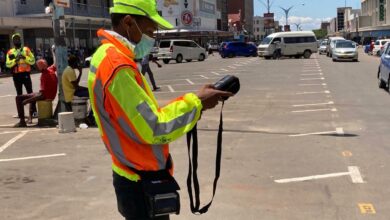Mat South villagers shun local currency

Matabeleland South villagers are shunning the local currency preferring instead to transact using the South African Rand (ZAR) and the Botswana Pula (BWP).
Ironically, before Zimbabwe legalised the multicurrency system in 2009, villagers in Matabeleland South had already started transacting using the Rand and the Pula.
As early as 2007, people in the province were charging lobola in either rand or pula, while livestock such as cattle, goats and chicken were also being sold in foreign currency.
Due to the province’s proximity to South Africa and Botswana, a number of people in Matabeleland South work in the two countries and regularly send money and groceries to their loved ones through cross border traders, popularly known as omalayitsha.
Matabeleland South consists of seven administrative districts namely: Bulilima, Mangwe, Matobo, Umzingwane, Insiza, Gwanda and Beitbridge.
A village head in Bambadzi, Bulilima, Martha Ncube, told CITE during a visit to the area on Wednesday, local currency usage remained subdued with the Rand and Pula dominating.
“Bond notes are not easy to come by,” said Ncube.
“Even if you are to go to Plumtree town you are told there is no money. The EcoCash usage is also very low with the cash-out facilities no longer effective. People used to do cash-out at the councillor’s place and at a few shops around but for now there is nothing to cash-out with the local currency having significantly lost value.”
She said due to challenges associated with the local currency most villagers preferred to trade in foreign currency, which is readily available.
For example, depending with size, a chicken costs between ZAR 50 and ZAR 100 while a goat also sells at between ZAR450 and ZAR 1, 000.
This is happening at a time when the government in June banned the use of foreign currency for all domestic transactions.
“We were very much disturbed in June when the government announced that we were no longer allowed to use foreign currency in Zimbabwe because this side we have so many people working in South Africa and Botswana, who are the ones that have kept us going,” said Ncube.
Four months since the return to the local currency, Zimbabwe is still battling to de-dollarise as most transactions in the informal economy remain in forex.
“If the local currency had ceased to work here, we were going to be adversely affected and the drought situation was going to be even worsened,” explained Ncube.
“We are pleading with the government not to interfere with our usage of the rand and the pula. There are no forex dealers in rural areas. In order to get their services we have to go to Plumtree town.”
She said villagers in some instances were forced to travel to Plumtree town to engage forex dealers for local currency in order to pay school fees and taxes as learning institutions and the local authority still insist on local currency.






